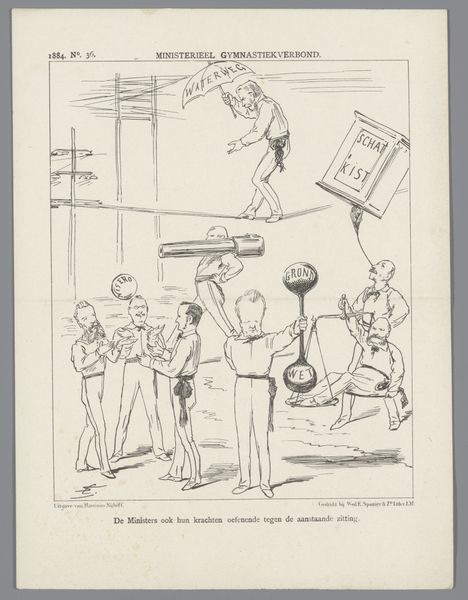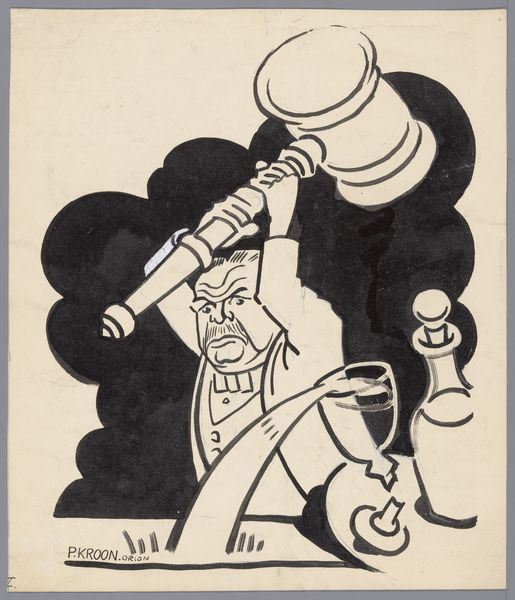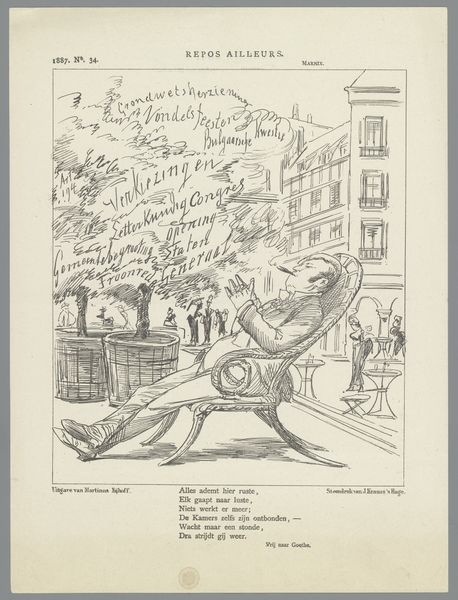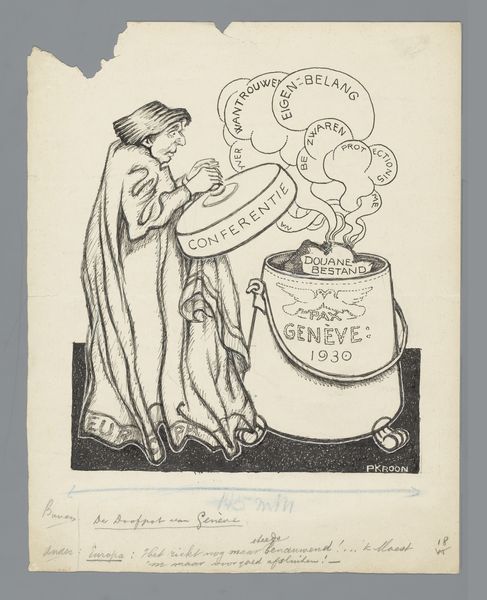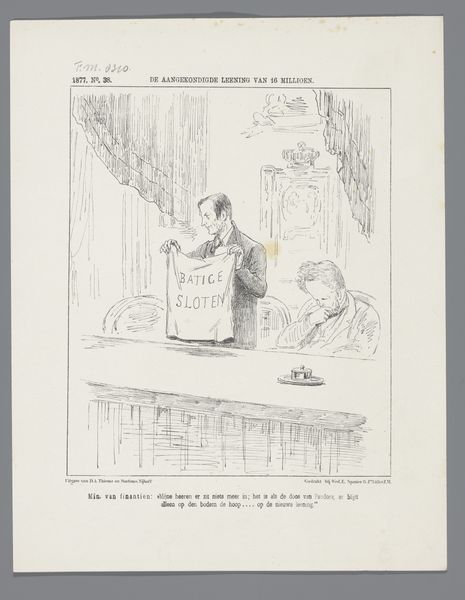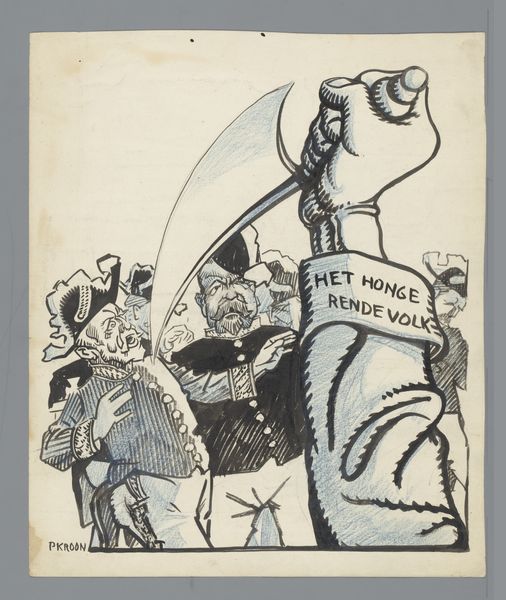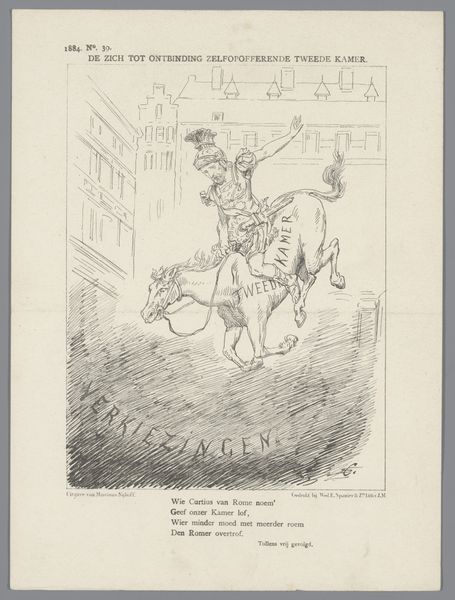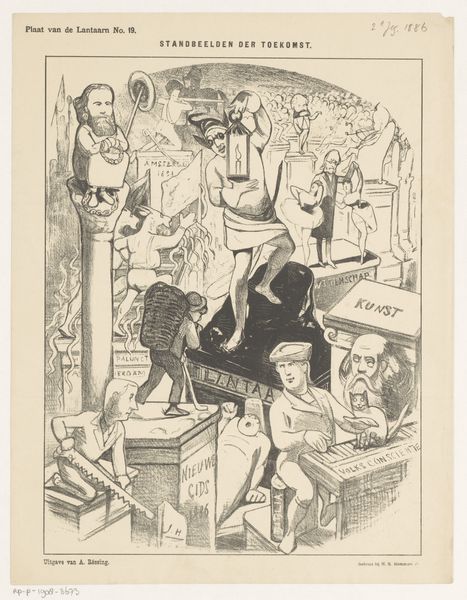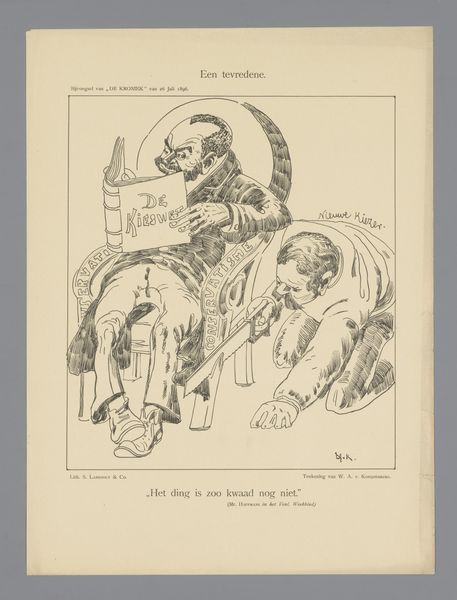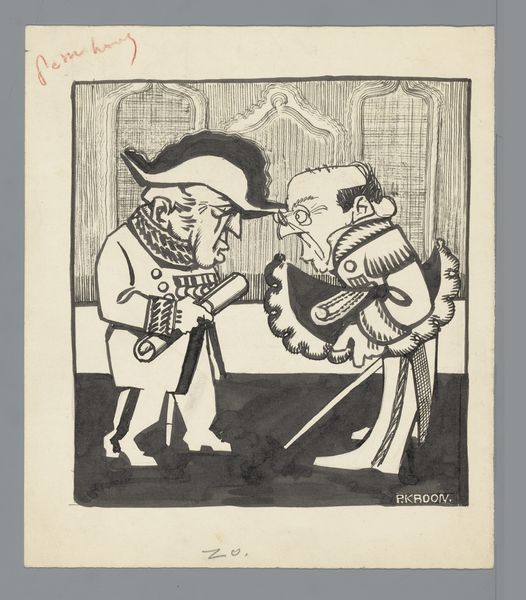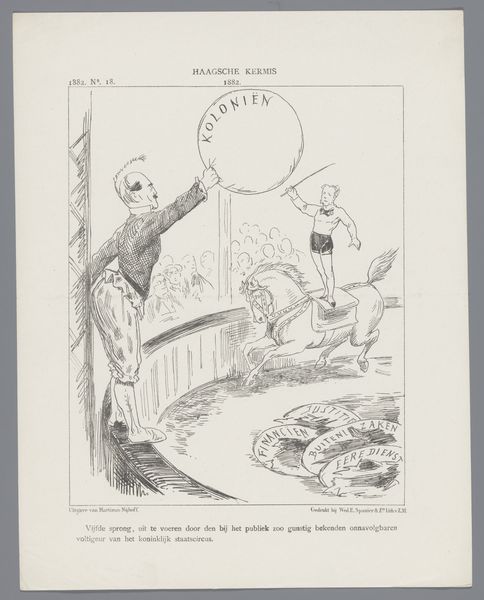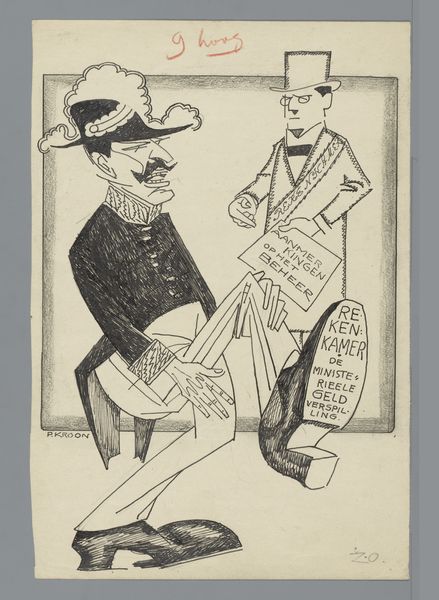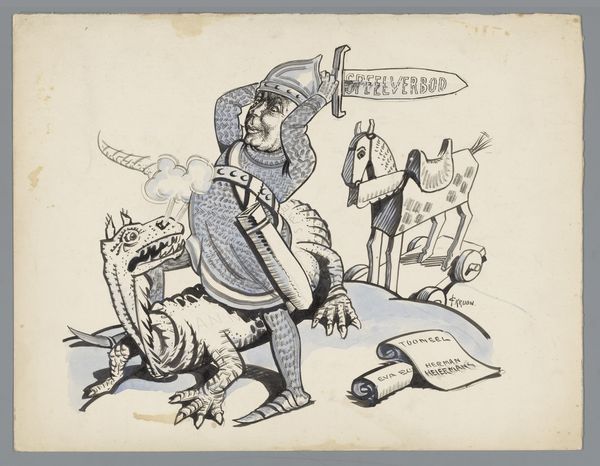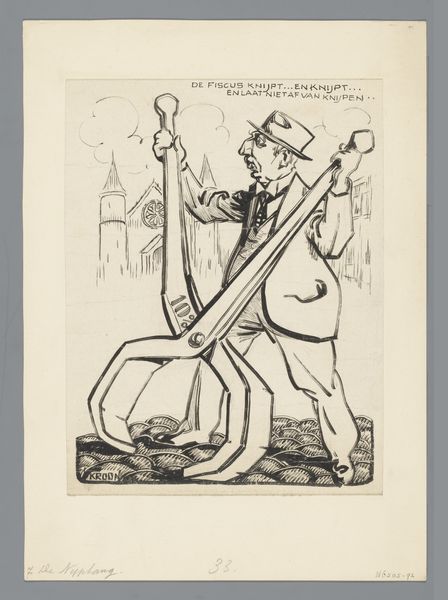
drawing, paper, ink, pen
#
drawing
#
comic strip sketch
#
aged paper
#
caricature
#
sketch book
#
paper
#
personal sketchbook
#
ink
#
ink drawing experimentation
#
pen-ink sketch
#
comic
#
line
#
sketchbook drawing
#
pen
#
watercolour illustration
#
storyboard and sketchbook work
#
sketchbook art
#
modernism
Dimensions: height 267 mm, width 242 mm
Copyright: Rijks Museum: Open Domain
Curator: At first glance, this work emanates a lighthearted and jovial atmosphere, almost vaudevillian in its simplicity of line. Editor: Indeed. We're looking at "Begin vlootconferentie te Londen," or "Beginning of the Fleet Conference in London," created by Patricq Kroon in 1935 using pen and ink on paper. It’s a caricature, clearly referencing the naval disarmament talks held in London that year. The artist’s hand is evident; it feels like a spontaneous sketch lifted directly from a sketchbook. Curator: The composition immediately strikes me. Notice how the artist uses the figure’s body and the oversized tuba to create a central focus, flanked by architectural elements. The swirling musical notes and the text add another layer, creating a visual rhythm. Editor: Precisely. The caricature is front and center, adorned with musical notations spelling out, “For he is a jolly good fellow” against the backdrop of international flags symbolizing the participating nations. The jolly tune paired with these caricatured figures during a time of immense global upheaval reads as deeply cynical. It certainly begs the question, who is this jolly good fellow, and what political games are at play? Curator: Absolutely. The text at the bottom reinforces this, alluding to an atmosphere of optimism and good will. I think the apparent disconnect between the depicted ‘jollity’ and the reality of international relations suggests a powerful critique of political theatre. Editor: Moreover, consider the choice of caricature itself as a visual language. It inherently embodies power dynamics by distorting and exaggerating features. Whose features are exaggerated and why? Whose narratives are being amplified or silenced in this conference? The use of satire encourages the audience to think critically about the figures involved and their motives. Curator: So, the technique and apparent whimsy underscore a much sharper social commentary about power, politics, and performative optimism amidst rising international tensions. It really underscores the idea of political maneuvering disguised by cheerful tunes. Editor: Exactly. What initially seems like a simple sketch transforms into a potent critique, laid bare by analyzing its composition and engagement with political history. It is a potent reminder that images, especially satirical ones, can wield significant political and social force.
Comments
No comments
Be the first to comment and join the conversation on the ultimate creative platform.
